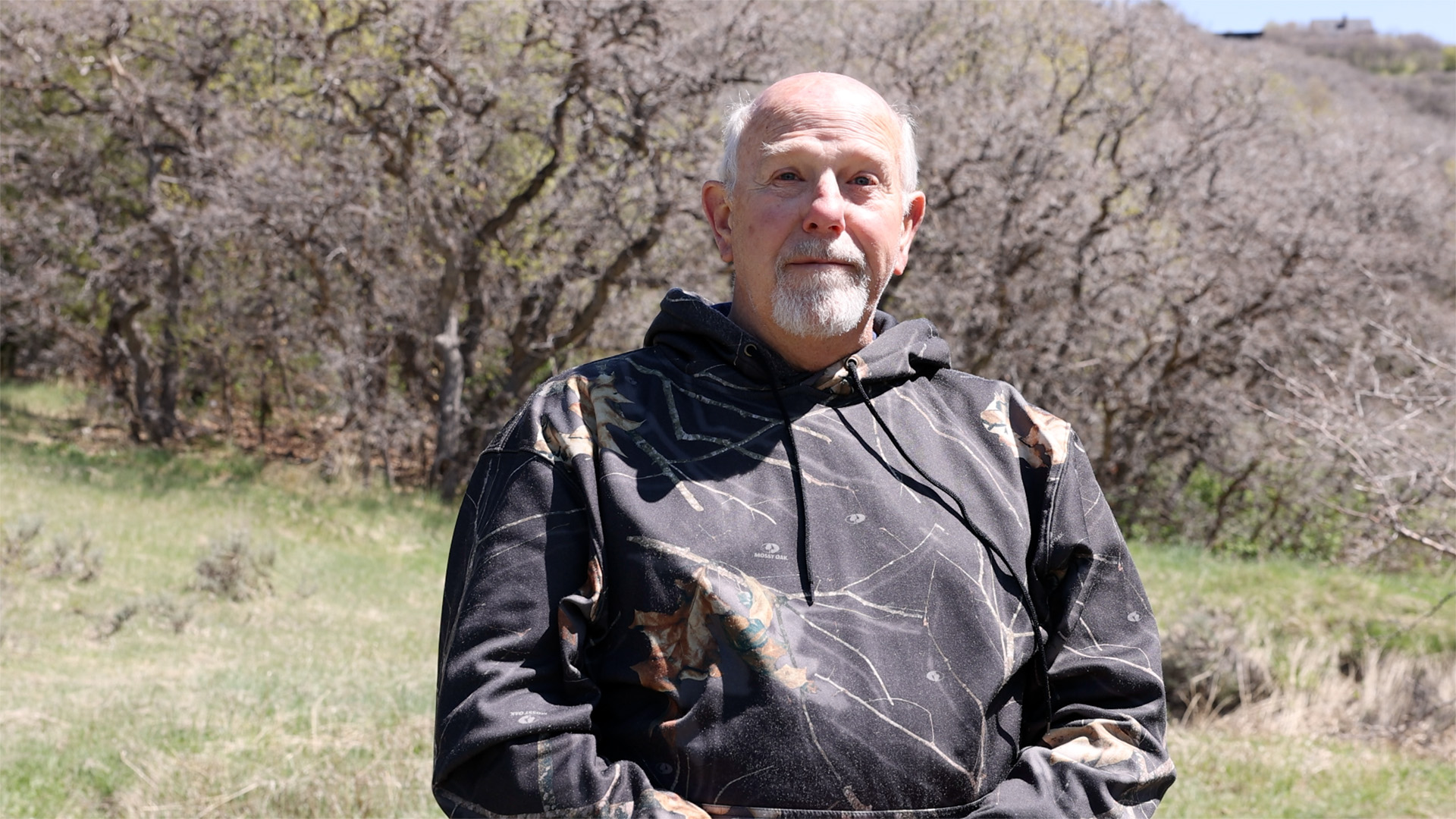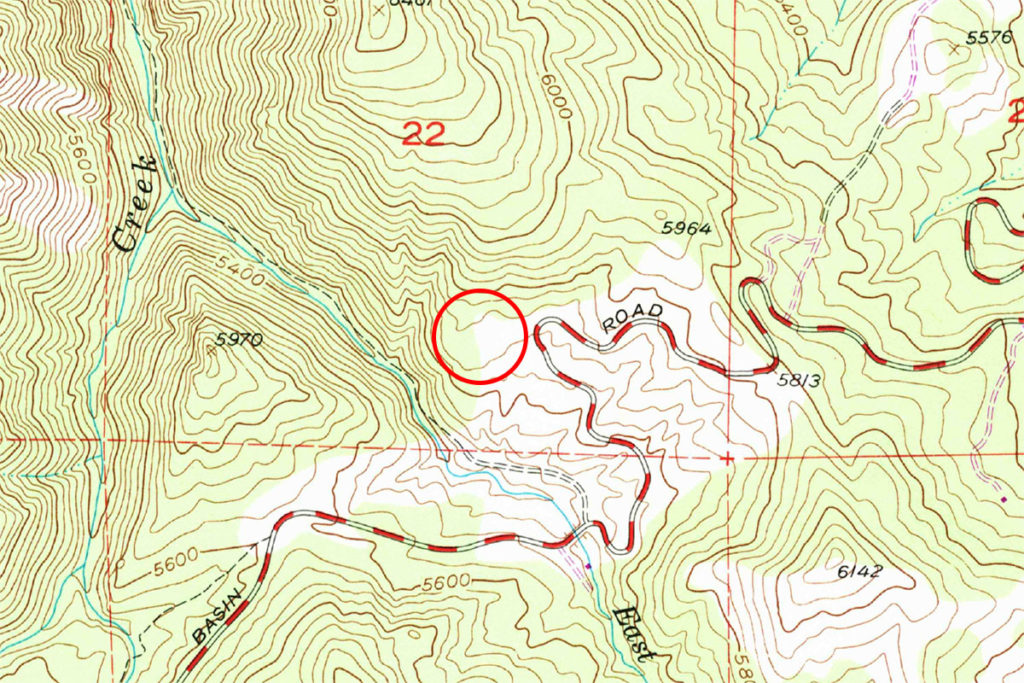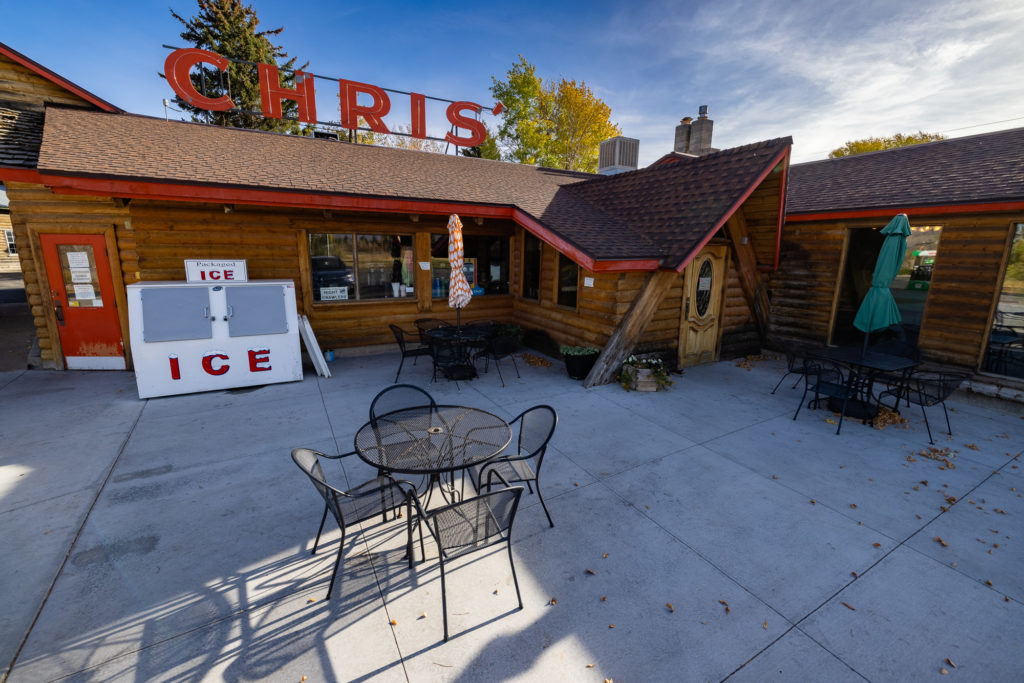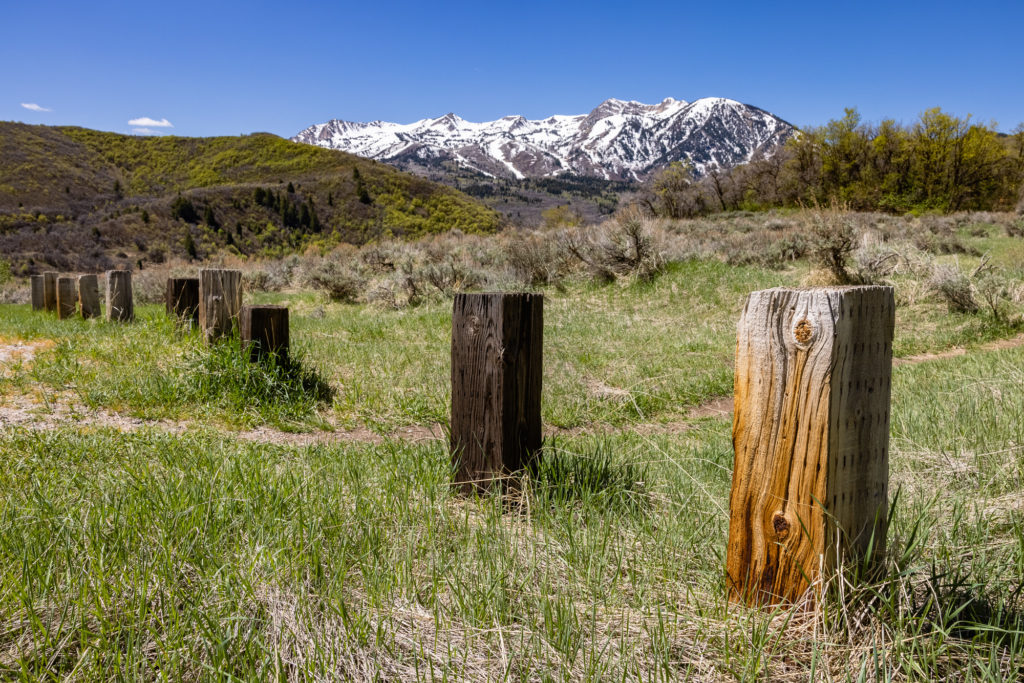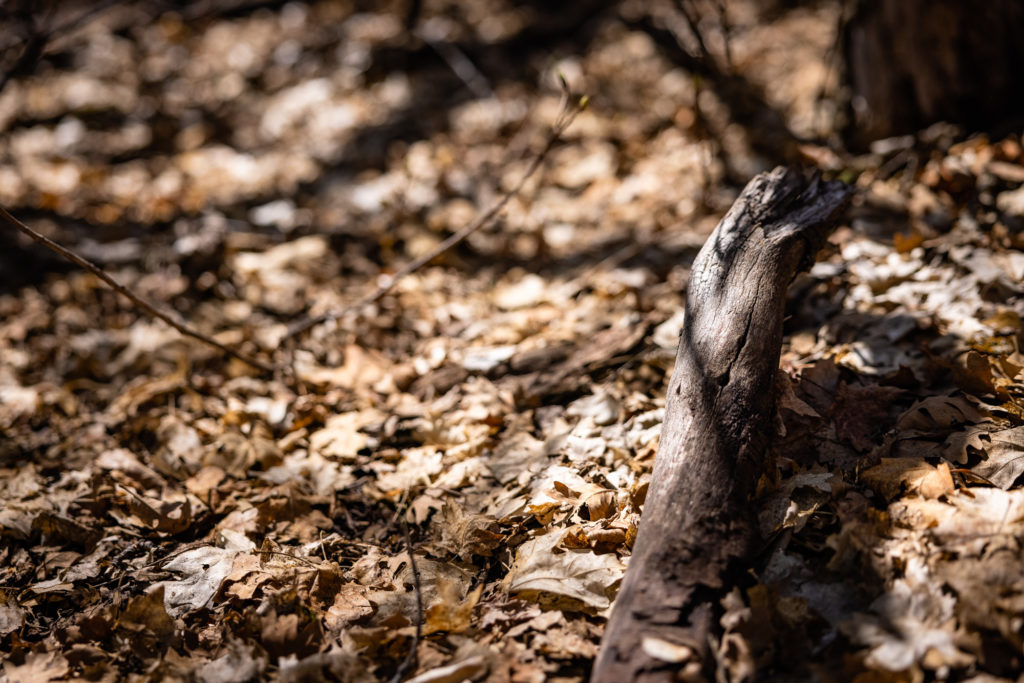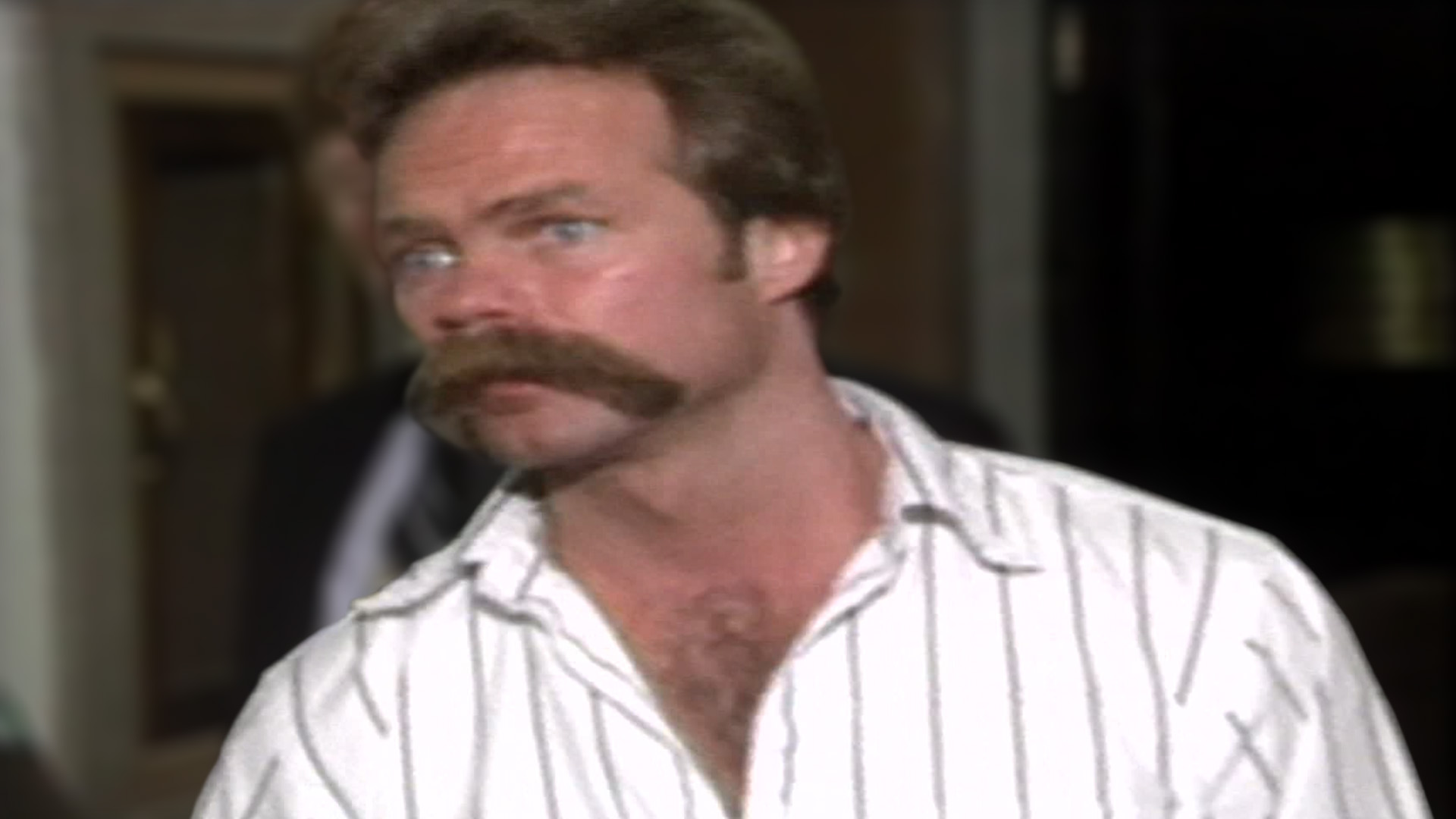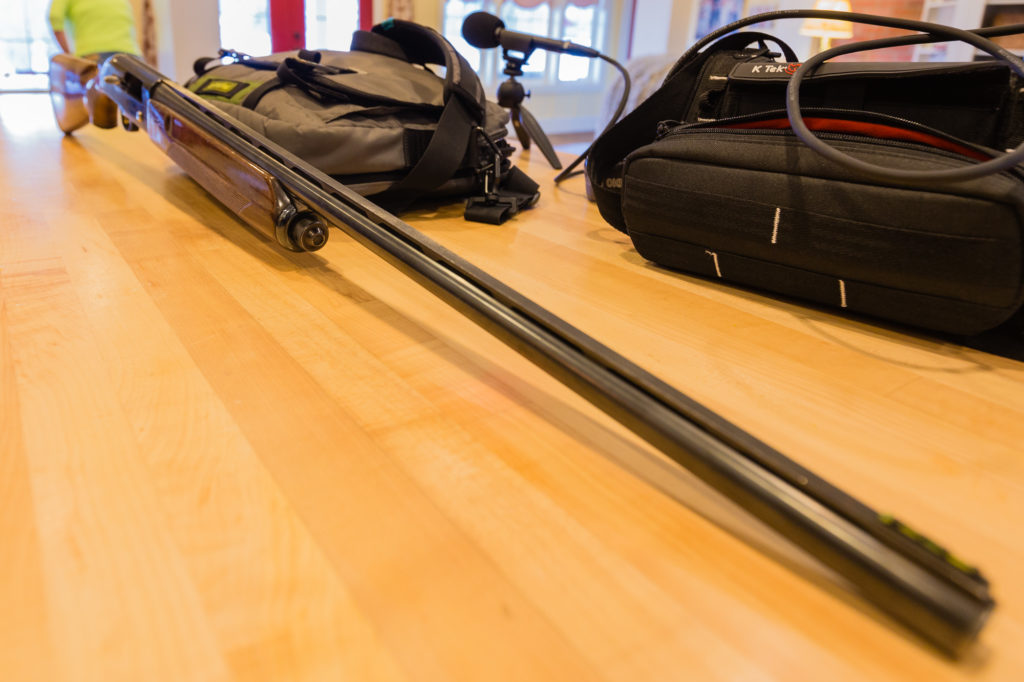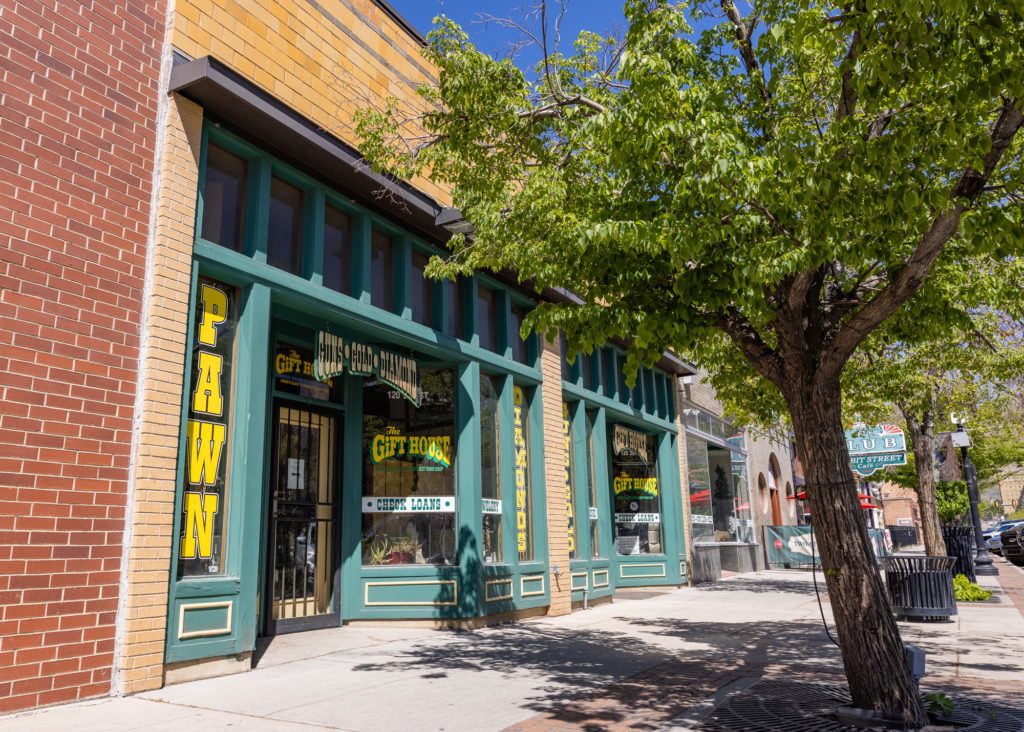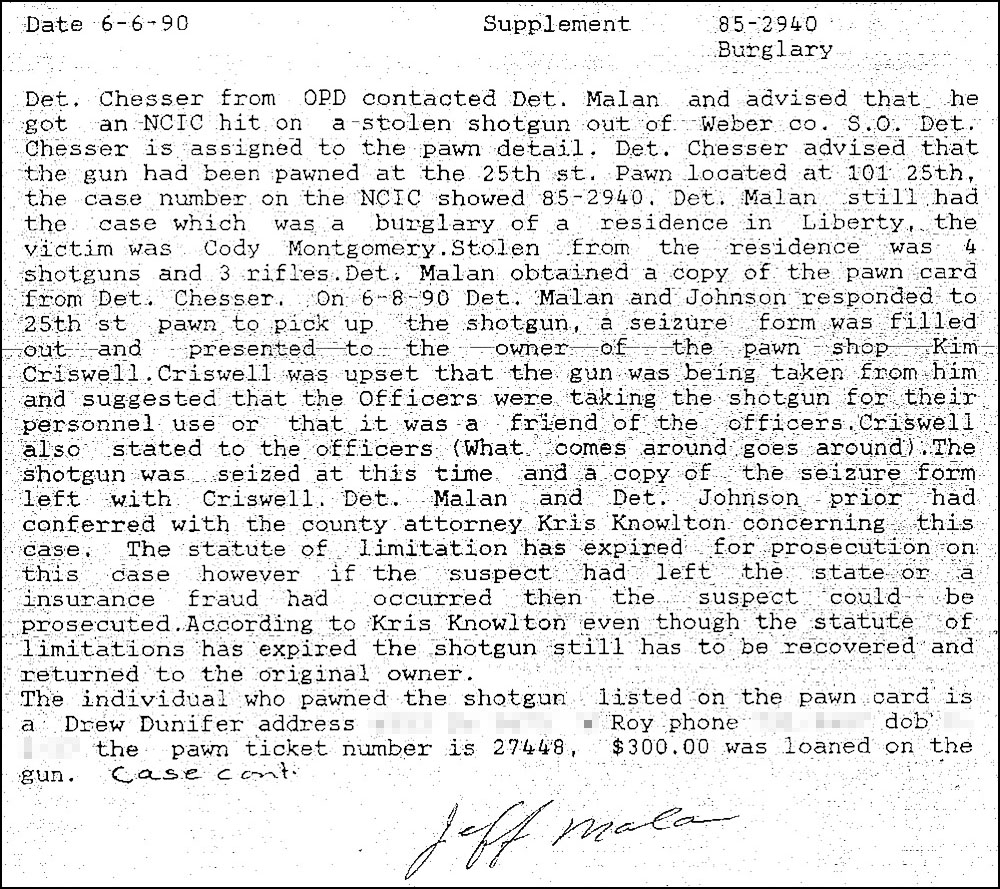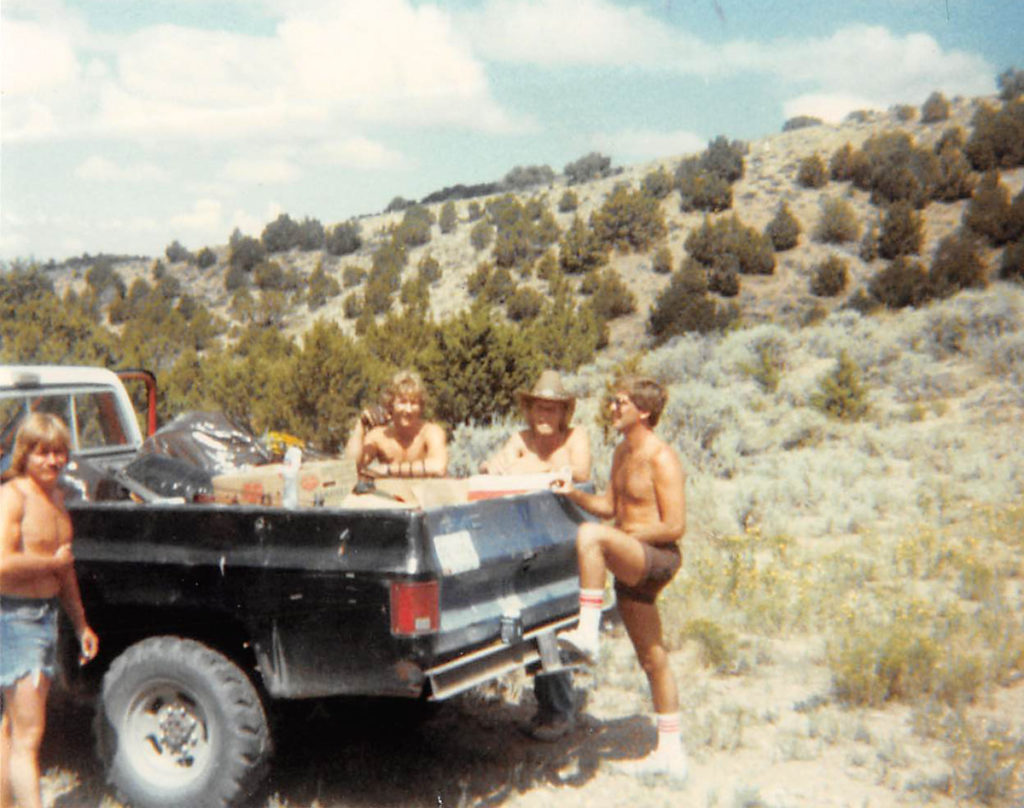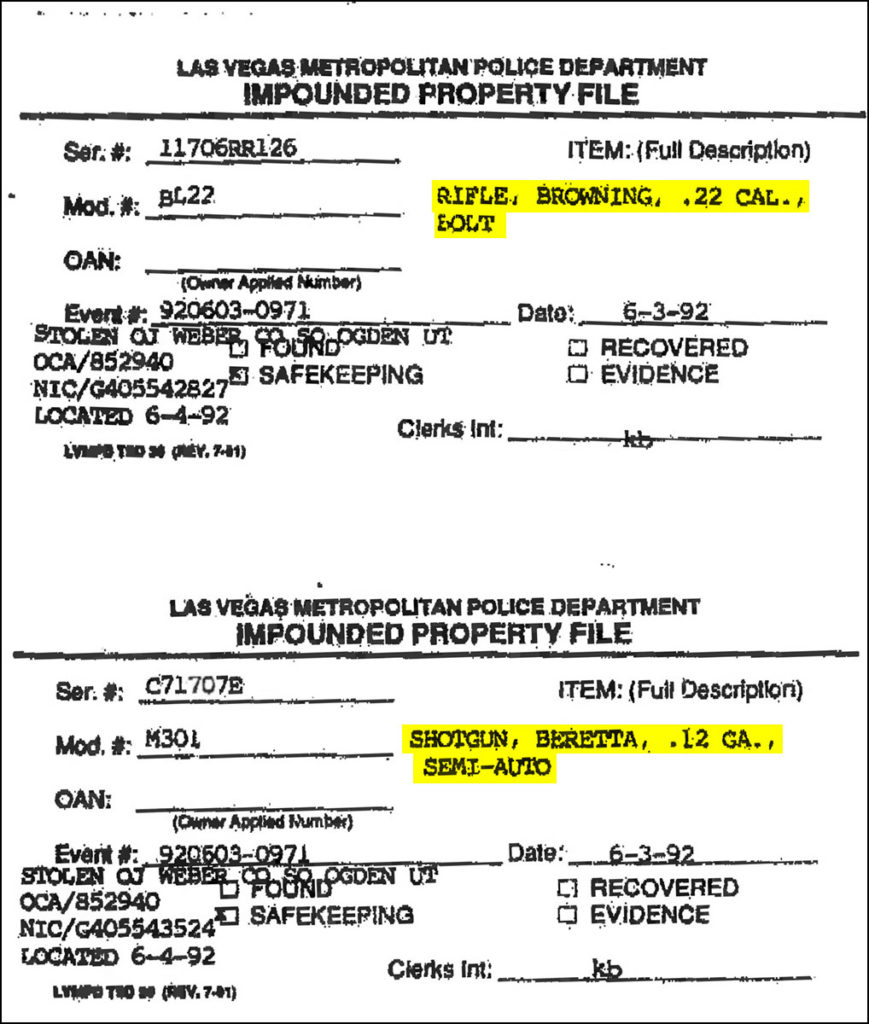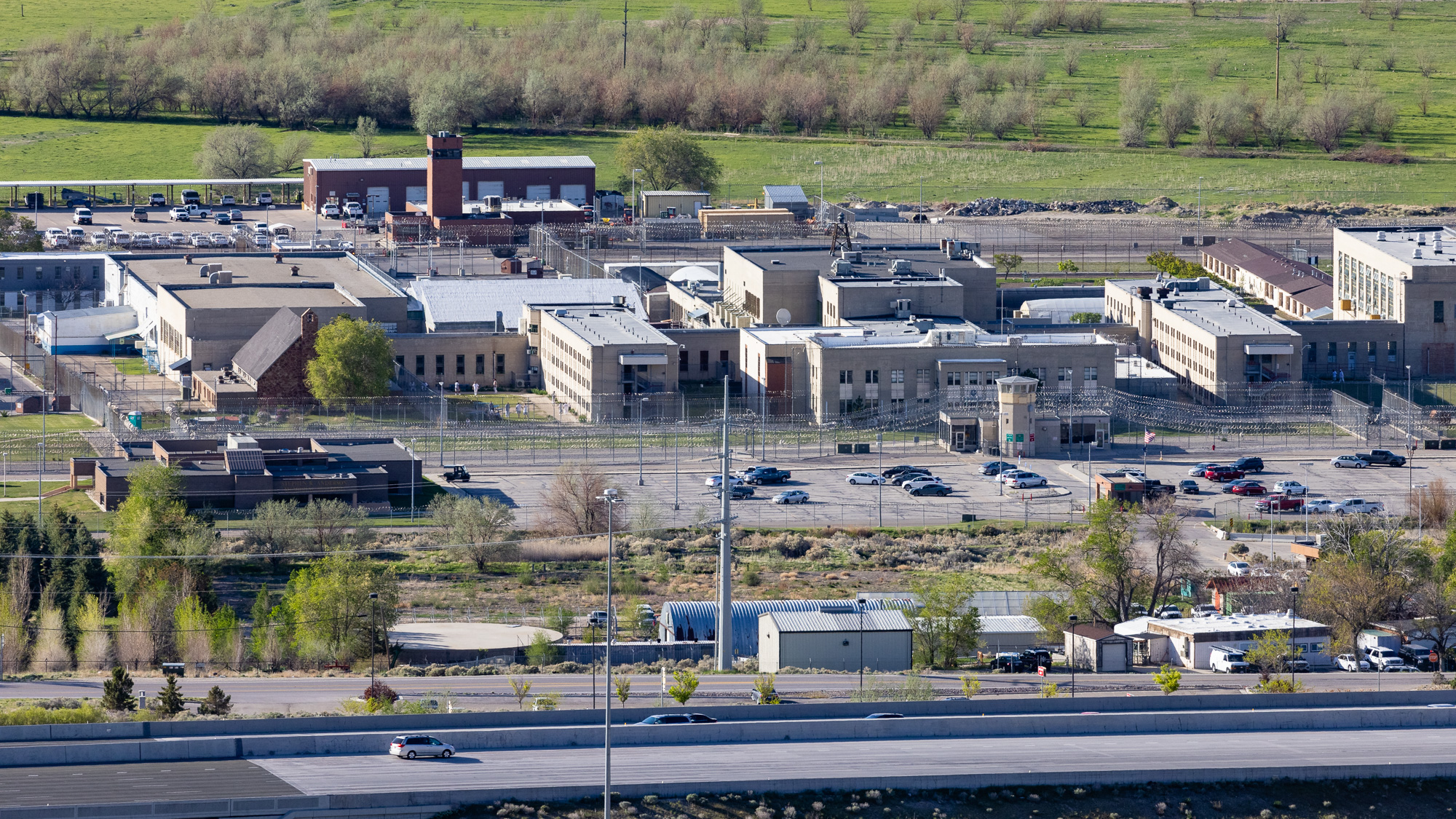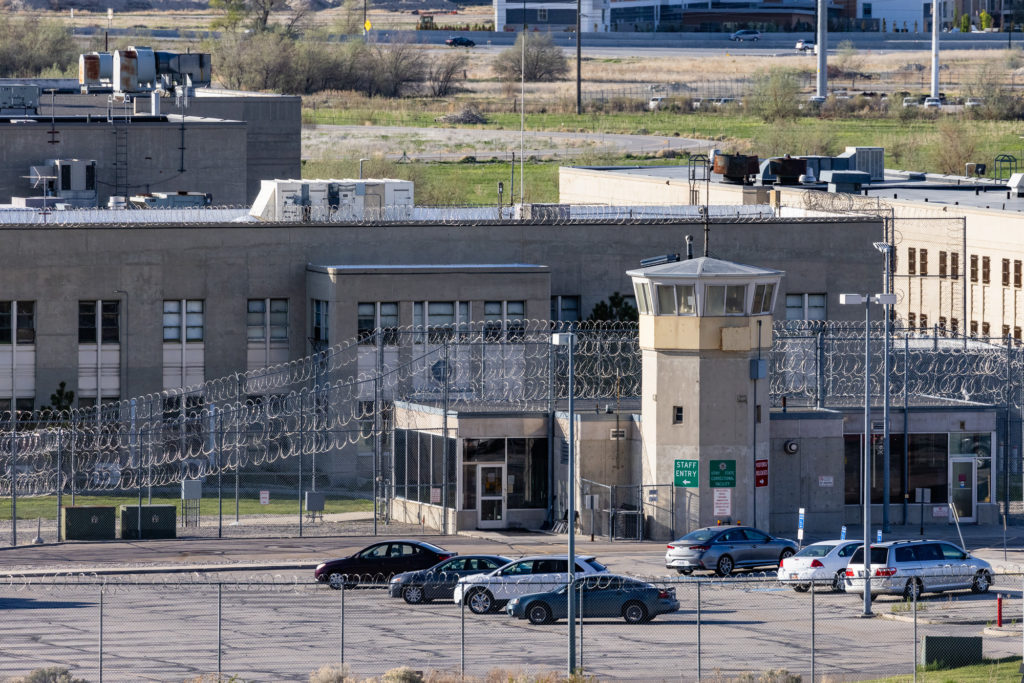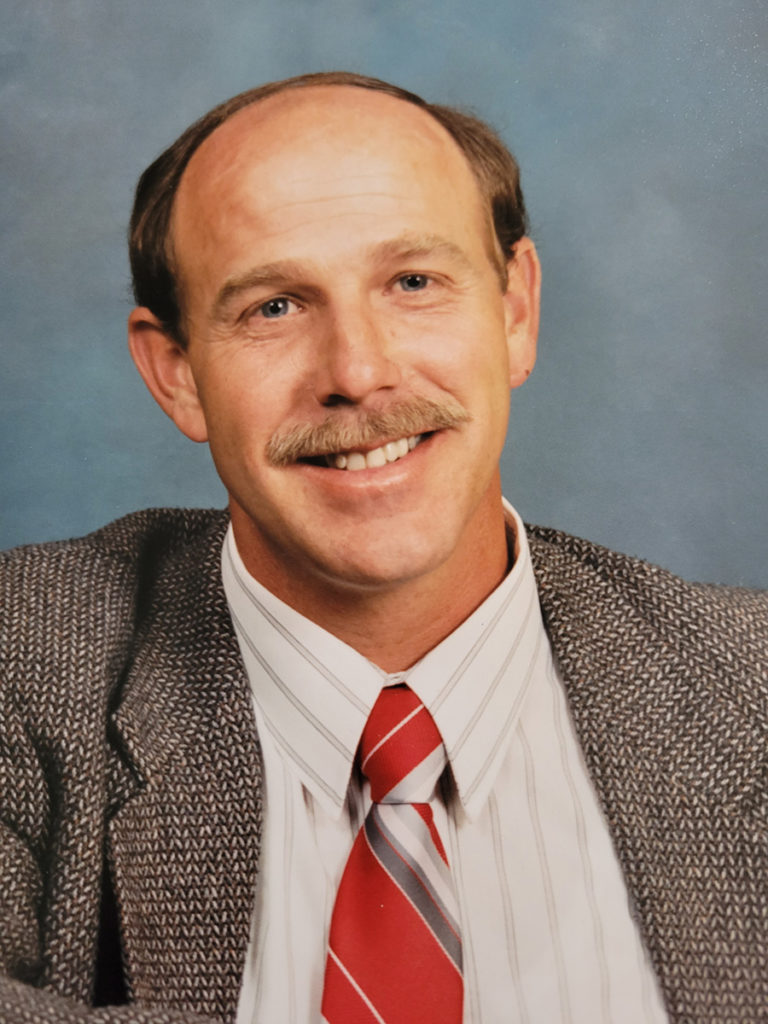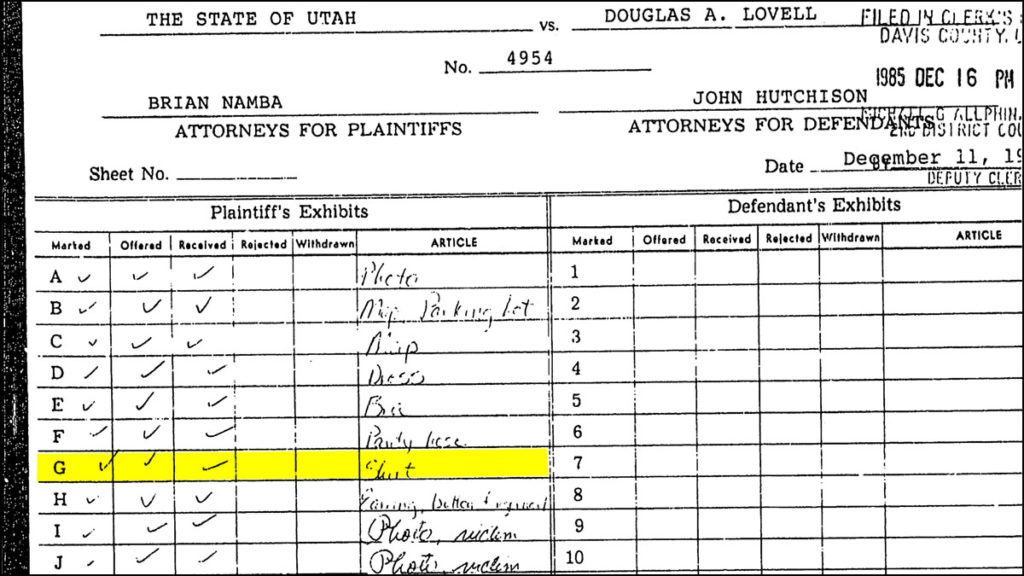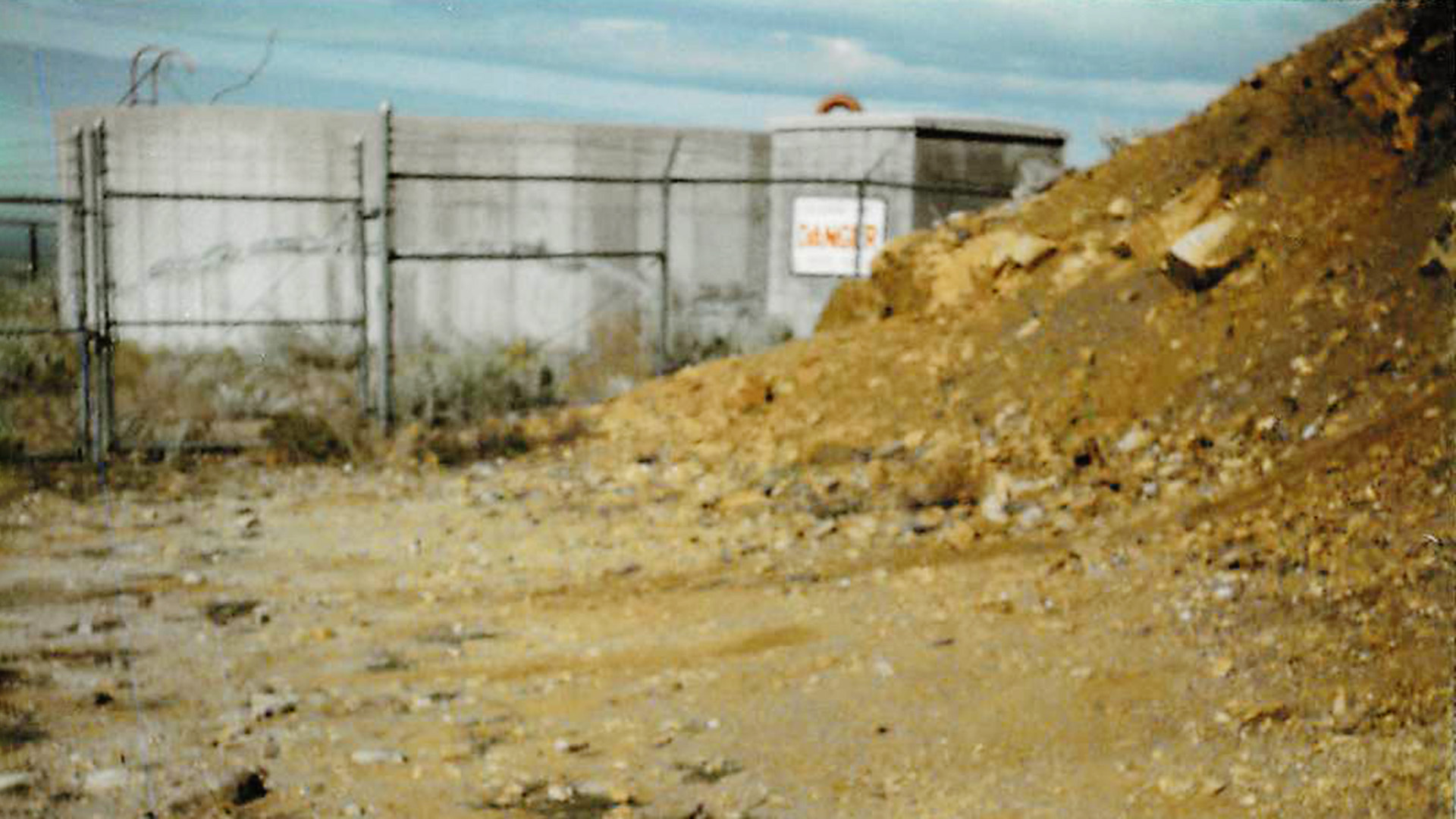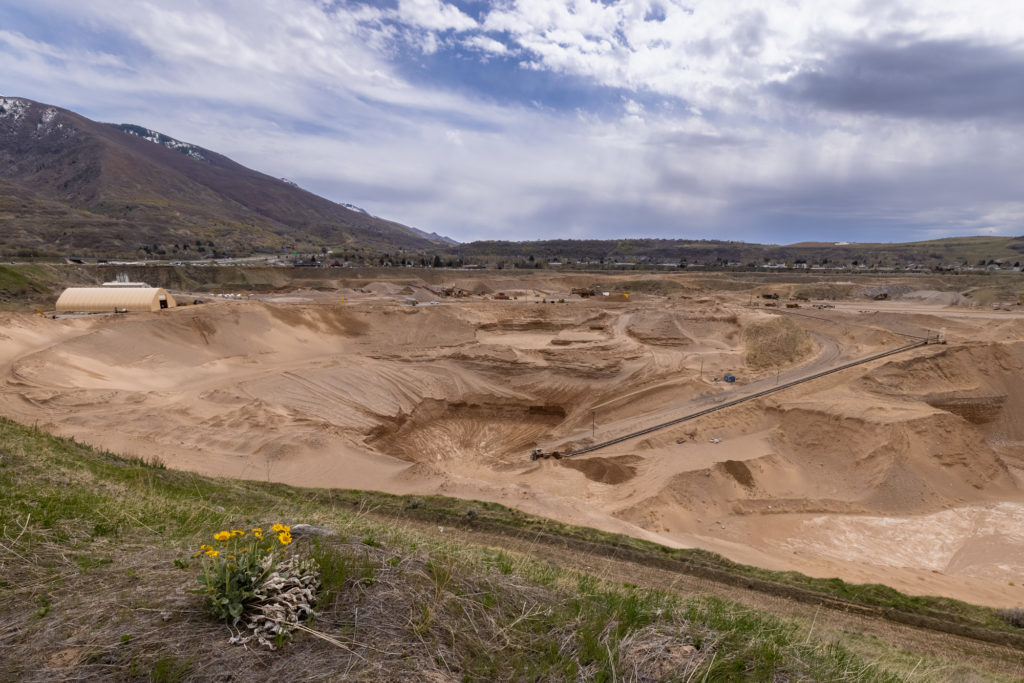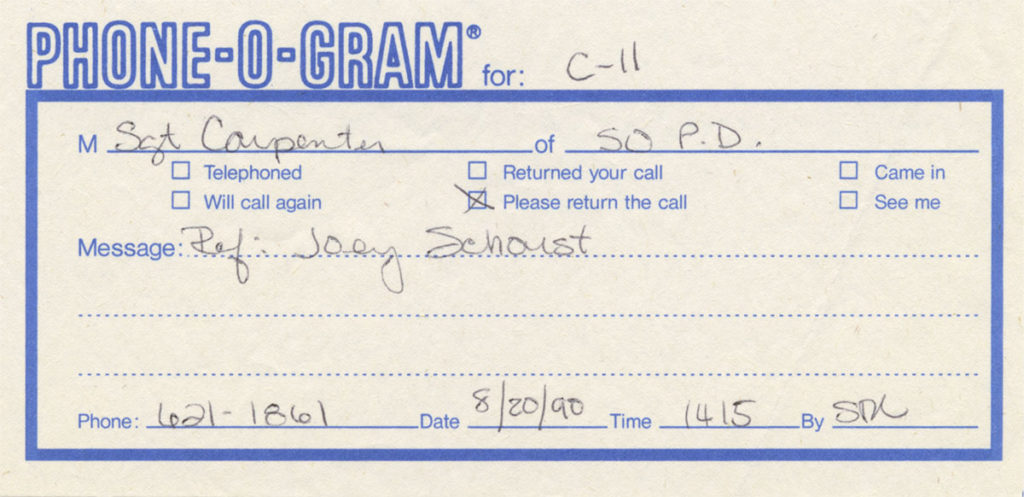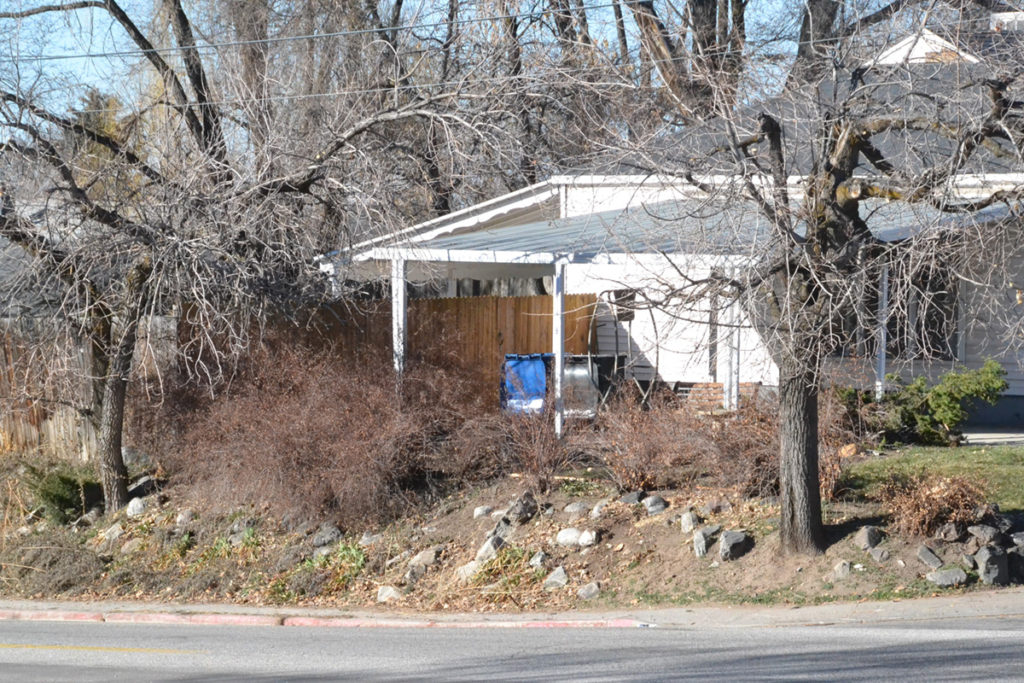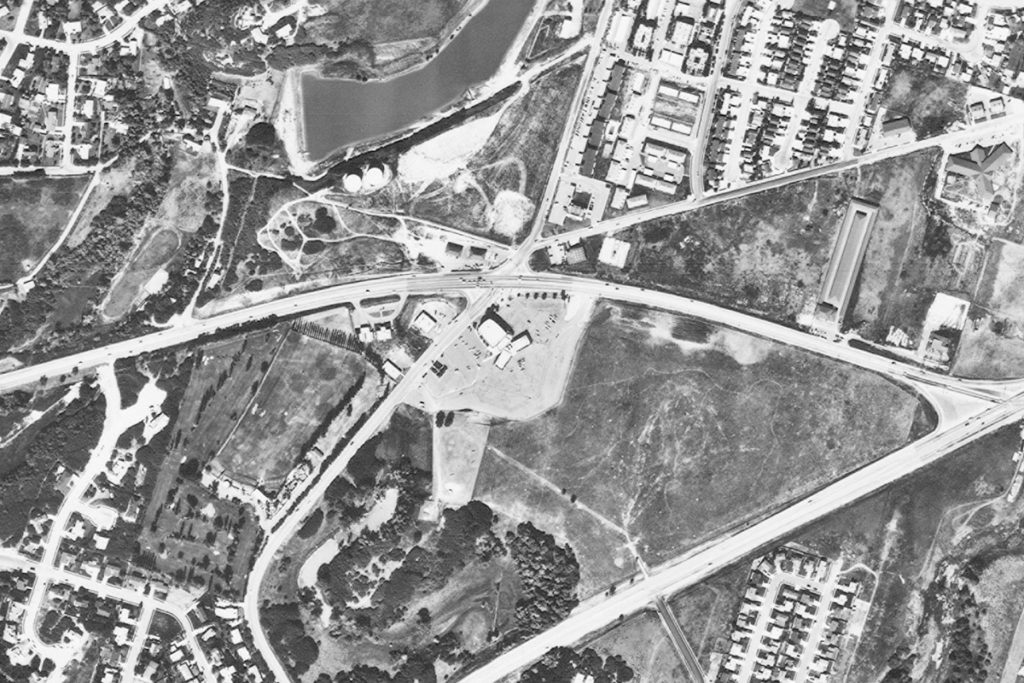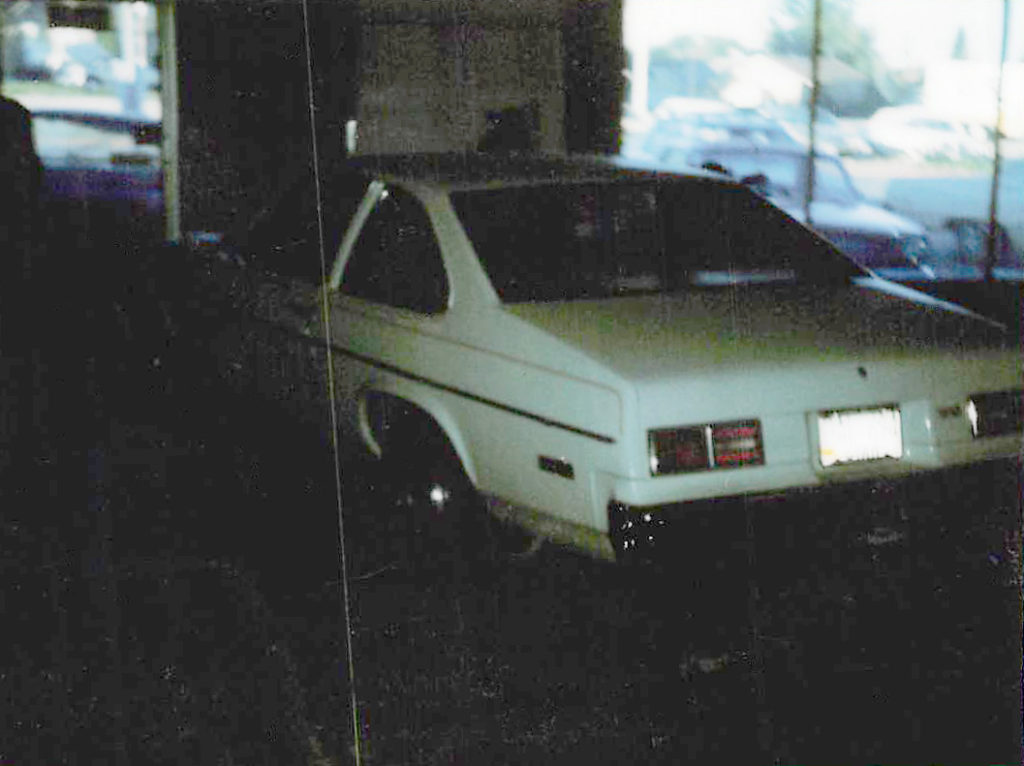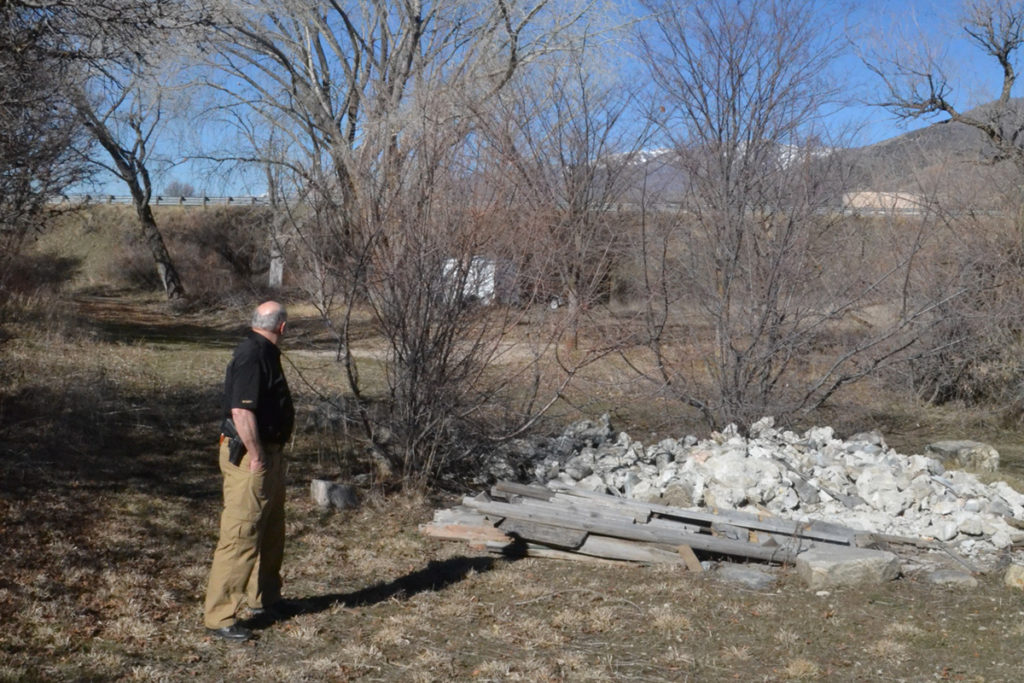Dave Cawley: Quiet pervaded the room. No music, no chatter of voices, just the soft hum of the lights and the breathing of one man.
William Andrews (from July 29, 1992 KSL TV archive): Whatever happens, I’m ready for it. It’s that simple.
Dave Cawley: A pair of needles were inserted into the man’s arms. Tubing snaked away from them, disappearing through a hole in the cinderblock wall. The man, William Andrews, reclined on a padded plank covered with straps. Across the room were a series of windows. On the other side sat a small group of people who were there to witness William’s execution.
William Andrews (from July 29, 1992 KSL TV archive): I feel very comfortably spiritually with the aspect of dying, with the prospect of dying because I am a very spiritual man.
Dave Cawley: William had been scheduled to die at the stroke of midnight on Thursday, July 30, 1992. A last-minute plea for reprieve to the U.S. Supreme Court had delayed the lethal injection for about an hour and a half. The Supreme Court justices had just declined to intervene. So now, at 1:35 a.m., a state official signaled to an unseen executioner in the other room to push the plunger and deliver the fatal drug cocktail into William’s veins.
William Andrews (from July 29, 1992 KSL TV archive): I have come to terms with … the idea of dying. Umm, I don’t want to die but I don’t want to continue to live the way I have been living.
Dave Cawley: The rising and falling of William’s chest slowed. His fists unclenched. This man, barefoot and clad in a white jumpsuit, stopped breathing. Doug Lovell was well aware of William Andrews. And though Doug didn’t see the execution himself, he spent that night wondering if he, too, might soon face the same fate.
This is Cold, season 2, episode 9: High Fidelity. From KSL Podcasts, I’m Dave Cawley. We’ll be right back.
[Ad break]
Dave Cawley: The execution of William Andrews came just weeks after South Ogden police Sergeant Terry Carpenter served Doug Lovell with a capital homicide charge for the murder of Joyce Yost. The charging document made clear the stakes for Doug. If he were convicted, the death penalty was on the table. The execution of William Andrews showed it was not an empty threat. Yet, William’s death had proved anything but expeditious.
Protester (from July 29, 1992 KSL TV archive): The whole world has its eyes on Utah.
Deannie Wimmer (from July 29, 1992 KSL TV archive): Emotion ran high among the few hundred people who attended what they knew might be the last night of this week-long vigil at the governor’s mansion. They prayed and sang that peace would prevail on this night. Speakers at the vigil urged the crowd to keep hope and challenge what divides society.
Protester (from July 29, 1992 KSL TV archive): White people need to come out and speak against racism because it destroys children and life and dignity.
Dave Cawley: William was black. He’d been convicted by an all-white jury of capital homicide for his role in one of Utah’s most notorious crimes: the April, 1974 Ogden Hi-Fi Shop massacre.
William had been just 19 years old when he and a fellow helicopter mechanic stationed at Utah’s Hill Air Force Base — 21-year-old Dale Selby Pierre, who later changed his name to Pierre Dale Selby — hatched a plan to rob the Hi-Fi Shop. They rented a storage unit, in which they planned to stash the stolen speakers, amplifiers and turntables. They used multiple vans to shuttle the stereos to the storage unit. They had another airman act as lookout. They intended to leave no witnesses.
William and Dale were both armed when they entered the Hi-Fi shop on the evening of April 22, 1974. They rounded up the two young clerks who were inside — Michelle Ansley and Stanley Walker — and forced them into the basement. The thieves went about their work but as they did so, a teenage boy named Cortney Naisbitt came through the door. Cortney was cutting through on his way to the rear parking lot after having visited a nearby photo lab. Andrews and Pierre took him hostage as well.
Some time later, Cortney’s mother Carol Naisbitt came looking for him. Orren Walker, the father of clerk Stanley Walker, did the same. And so the number of hostages bound in the Hi-Fi Shop’s basement grew to five.
William and Dale had watched the film “Magnum Force” over and over in the days leading up to the crime. The movie, a sequel to the original Clint Eastwood crime drama “Dirty Harry,” featured a scene in which a pimp killed a prostitute by forcing her to drink drain cleaner. William and Dale had taken note of that scene. They’d purchased a bottle of liquid Drano and brought it with them to the Hi-Fi Shop. Orren Walker would later testify about how his captors sought to deliver the poison.
Orren Walker (from July 29, 1992 KSL TV archive): Pierre had the cup. Andrews poured the Drano into the cup. Pierre handed it to me to give to Michelle, Cortney and Stanley. And I just stood there. When I stood there, then Andrews pointed the gun at my head. He says, and threatened me, he said, ‘man, there’s a gun at your head.’ The thought went through my mind, ‘well, if he shoots me, he shoots me. I’m not about to take it and give it to ‘em.’
Dave Cawley: They gagged Orren and shoved him face-first onto the floor. Then, they propped up the other four hostages and poured the caustic cleaner into their mouths. Hollywood had not reflected the actual horror of what would occur. The Drano caused chemical burns and blisters, not immediate death. The men attempted to place duct tape over their victims’ mouths to quiet their screams, but their skin just sloughed off under the adhesive.
Frustrated by the delay, Dale then shot the hostages one by one. The first round he fired at Orren Walker missed and the second just grazed his head. Dale attempted to garrote Orren and when that failed, had William place a ballpoint pen against Orren’s ear. Dale then kicked the pen.
In the middle of this, Dale told William to leave him alone for a bit. He then raped the female clerk, Michelle, before shooting her in the back of the head. Orren Walker and Cortney Naisbitt survived. Carol Naisbitt, Stanley Walker and Michelle Ansley did not. Orren would go on to testify against William and Dale at their trial.
William Andrews (from July 29, 1992 KSL TV archive): When Mr. Walker testified at trial, at that time I felt he was a very sincere and I felt that he was the only person at the trial that maintained his honor. That did not mix up the facts or try to add, add anything to it. I thought he was very honorable and told the truth the way he saw it as best he could.
Dave Cawley: That is William Andrews’ own voice. It and the clips at the start of this episode come from the archives of KSL TV. William and Dale were tried and convicted together. Both received the death penalty. Dale Selby died first, in 1987, by lethal injection.
Con Psarras (from July 29, 1992 KSL TV archive): But by then, it was probably too late for William Andrews. He was locked on to the same legal track as Selby, the man who actually pulled the trigger in the basement of the Hi-Fi Shop. In the eyes of the law, Selby’s and Andrews’ cases were never separated until Selby was executed five years ago.
William Andrews (from July 29, 1992 KSL TV archive): There was never any distinction made between my participation in that crime and Pierre’s. No one can deny the viciousness of what took place there that night but I did not commit all of those vicious acts.
Dave Cawley: The fact William was going to die in spite of not having directly killed anyone himself prompted public outcry from those who believed the prosecutors and jurors had been motivated by racial bias.
Unidentified woman (from July 29, 1992 KSL TV archive): I’m going to write the story of Utah the murderer of blacks in Utah, a state that had made history for killing, murdering someone who has not killed anybody.
Man-on-the-street (from July 29, 1992 KSL TV archive): How can you kill a man for a crime that he didn’t commit?
Dave Cawley: On the other hand, the prosecutors pointed out William was the one who planned the heist. He was the brains, Dale was the muscle. William had also done nothing to prevent the murders.
Robert Wallace (from July 29, 1992 KSL TV archive): A person can be found guilty and receive capital punishment if they kill someone, if they have other intent to kill, if they attempt to kill, if they contemplate that someone will die, if they use lethal force.
Dave Cawley: The debate raged for weeks ahead of William’s scheduled execution. Protesters held a days-long vigil on the streets of Salt Lake City.
Deannie Wimmer (from July 29, 1992 KSL TV archive): Others told the crowd that no matter what happens to William Andrews, their fight will continue.
Protester (from July 29, 1992 KSL TV archive): Thank you William Andrews for bringing us all together. And we will fight on no matter what.
Rocky Anderson (from July 29, 1992 KSL TV archive): Let’s all of us insist of our political leaders that they hear this community and do away with this death penalty once and for all.
Dave Cawley: This formed the backdrop against which the death penalty prosecution of Doug Lovell was set to play out. And the attorney representing Doug in his capital homicide case was the same man who had nearly 20 years earlier represented William Andrews: John Caine.
[Scene transition]
Dave Cawley: John Caine had lost the William Andrews case, but he’d gone on to represent defendants in other capital homicide cases. None had resulted in a death verdict. But the circumstances of the Joyce Yost murder gave him pause. Years later, Caine would say “this was one where I thought if it ever got imposed, this could be the one.”
Joyce’s disappearance had made the news at various times over the years but it’d never captured the public’s attention the way the Hi-Fi Shop murders had. Still, John recognized what’d happened to Joyce was in some ways on par with that horrific crime.
“I thought this case had things in it that made it as egregious as Hi-Fi in some respects,” John later said, noting it would “be particularly abhorrent to general citizens.”
Caine was a religious man and an outspoken opponent of capital punishment. His hopes of saving Doug from death relied on keeping Rhonda’s story out of the courtroom or, failing that, cutting a plea deal with the prosecution. He’d opened those negotiations with Weber County Attorney Reed Richards at the end of 1992. In early ’93, however, Reed left that job to become Chief Deputy Utah Attorney General.
On March 26, 1993, the Utah Supreme Court formally declined to take up Doug’s interlocutory appeal, the one challenging the admissibility of Rhonda’s testimony and the wire recordings.
Terry Carpenter (from May 1, 1991 police recording): How did he get in?
Rhonda Buttars (from May 1, 1991 police recording): He told me he went through a window.
Dave Cawley: That meant nothing more stood in the way of a trial. Judge Stanton Taylor signed an order, ordering Doug to appear on March 29th. John Caine was already in the courtroom when the bailiffs brought Doug in that afternoon.
“So today’s the day, huh,” Doug asked, apparently believing he was there to enter his guilty plea.
John told Doug he had some bad news. Their appeal had failed. The tentative agreement he’d reached with Reed Richards was now off the table.
“You’ve gotta be kidding me,” Doug said.
Doug had come clean to his family and to the other inmates in his section at the prison, telling them he was going to admit to killing Joyce Yost. Any one of them could now turn against him and testify. He was furious. John did what he could to salvage the situation. He asked for and received a two-week delay, buying time to re-open talks with the prosecutors.
Utah law provided two possible sentences for the crime of capital murder at the time when Doug killed Joyce in August of ’85: death or life in prison. But there was a huge asterisk after that word life. It meant life with the possibility of parole. Which would mean if Doug were convicted and sentenced under that law, he might some day win his freedom. That law had changed though in April of ’92…
Rep. Merrill Nelson (from Utah State Legislature archive recording): This bill creates a new sentencing option of life without parole.
Dave Cawley: …just weeks before Terry Carpenter served Doug with the charges.
Terry Carpenter (from May 14, 1992 police recording): And I, uh, would have hoped that one of the things that would have saved you the capital aspect of it would have been cooperating with me on that but obviously you refused to do that.
Doug Lovell (from May 14, 1992 police recording): Well—
Terry Carpenter (from May 14, 1992 police recording): That may be the thing that costs you your life, Doug.
Dave Cawley: The state lawmakers had talked in their debates about the hesitance jurors in some fringe capital cases might feel, if their only choices were death or life with the possibility of parole.
Rep. Merrill Nelson (from Utah State Legislature archive recording): These dangerous people are subject to parole under current law and, uh, will likely be paroled.
Dave Cawley: The new option of life without the possibility of parole — or LWOP for short — was not without controversy. Some feared it would weaken the death penalty by reassuring reluctant jurors the killers they convicted would not be set free in just five or ten years. Those concerns did not derail the bill. It became law and was in effect at the time of the initial plea negotiations between John Caine and Reed Richards in late ’92 and early ’93. But Reed’s first proposal was for the old standard of life with the possibility of parole.
Kim Salazar: I thought that in the very beginning when we discussing all this … that LWOP wasn’t on the table.
Dave Cawley: The other members of the prosecution team started the negotiations anew after Reed departed the case. And prosecutors Bill Daines and Gary Heward were not as generous. They told John Caine at the March 29th hearing if Doug returned Joyce’s remains, they’d leave it up to the judge to decide between life with or without the possibility of parole.
Doug returned to court two weeks later, on April 12th. The hearing that day ended up being postponed but as bailiffs were taking Doug out of the courthouse, he spotted Terry Carpenter who was there booking someone else on an unrelated drug case.
Doug told Terry he wanted to talk to him.
“You can’t talk to me without your attorney,” Terry said.
Terry Carpenter: And he says ‘no, that’s where you’re wrong. I can talk to you, you just can’t talk to me.’
Dave Cawley: Terry thought it over and decided this was correct, as a matter of law. They stepped aside into a small conference room and sat down.
Terry Carpenter: He says ‘y’know, I’ve wanted for a long time to get Joyce back. I just didn’t know how.’
Dave Cawley: Doug didn’t outright admit to killing Joyce, but said he’d hoped for years to figure out a way to pass the location of her body to Joyce’s family. When Doug had said his piece, Terry said…
Terry Carpenter: ‘You need to sit down with, with your attorney and make sure we do this the right way but that will be up to you completely.’
Dave Cawley: In the meantime, Joyce’s children Kim Salazar and Greg Roberts told the prosecutors they did not support any deal which would leave open the possibility of Doug ever being paroled.
Terry Carpenter: You talk with them and you say ‘okay, now this guy’s at least told us he’s killed her. We have a chance to get the ultimate penalty for him.’
Greg Roberts: I think we wanted the death penalty, death penalty, death penalty.
Dave Cawley: Terry and the prosecutors were confident they could secure that sentence even without Joyce’s body. But their best chance of bringing Joyce home was making a deal with Doug. They played hardball. No more letting the judge decide on the question of parole. Their final offer was Joyce’s body in exchange for life without the possibility of parole.
Doug learned of the new terms at his next court hearing, on April 19th. He was, once again, furious. That same day, Judge Stanton Taylor scheduled the trial to begin on June 28, 1993. It would not be delayed again.
[Scene transition]
Dave Cawley: At the start of May, Doug mailed a pair of letters: one to John Caine and the other to Judge Taylor. In both letters, he expressed frustration over the plea negotiations and said he was firing John and intended to represent himself. Prison staff transported Doug to the Weber County courthouse for a pretrial hearing a month later, on June 1st. He entered the courthouse and found John there waiting for him.
“What are you doing here,” Doug asked. “Didn’t you get my letter?”
John explained the court was not going to allow Doug to fire his attorney in a capital case. The stakes were too high. Like it or not, they were stuck with one another. Doug’s back was to the wall. Ten days later, John told the prosecution his client would accept the offer. He would plead guilty, return Joyce’s body and take life without parole. The prosecution agreed to the terms. All that remained was to put them in writing. Would Doug really follow through? Kim Salazar and Greg Roberts had their doubts.
Greg Roberts: I think that as we were going through that, that Carpenter and even those, the prosecutors and things—
Kim Salazar: Bill Daines.
Greg Roberts: —they were letting us know that they thought that Doug was playing them.
Dave Cawley: Terry Carpenter and U.S. Secret Service Agent Glen Passey, picked Doug up from the prison a few nights later. They were transporting him up to the Weber County Jail ahead of a meeting planned for the morning of June 17th, at which time Doug would sign a formal “memorandum of understanding” outlining the plea deal.
They took a detour before dropping Doug at the jail. Terry picked up a pizza and they went to a park next to South Ogden police headquarters. John Caine showed up there as well with a six-pack of beer. They all got to talking while Doug got to drinking.
Doug said he didn’t want to be there when police recovered the remains. It was too traumatic, too emotional. But he said he could point out the spot on an aerial image. He asked for one showing the terrain below the Snowbasin ski resort on the back side of Mount Ogden.
Terry Carpenter: But he says it’s the only place where there’s a guard rail on the curve.
Dave Cawley: The more Doug drank, the more he seemed to loosen up. Sometime after 10 p.m., as the summer evening took on the veil of darkness, he changed his mind, saying he was willing to go to the spot so long as they went right then, before his courage faltered.
Terry Carpenter: You’ve got somebody who is fighting emotions, you got somebody who is wanting on one side of him to do something and maybe for the first time in his life to do something right.
Dave Cawley: Terry made a series of phone calls to the prosecutors. They told him to wait until the next day, after Doug had signed the agreement. The next morning Doug read through the memorandum of understanding at the jail. It said in order for the agreement to be binding, he had to lead investigators to human remains that could be positively identified as those of Joyce Yost. Finding just her purse, for instance, wouldn’t be enough.
“If the mountainside has moved, if the animals have carried her off,” Doug said, “if for any reason we can’t find her, I’m [expletive]ed.”
He was right. He signed his name anyway.
[Scene transition]
Dave Cawley: A string of cars cruised east on Utah Highway 39. They entered Ogden Canyon, one after another, winding along the narrow two-lane road like a slithering snake. Doug sat in the back of the lead car, next to Terry. John Caine sat in the front passenger seat while Glen Passey, the Secret Service agent, was at the wheel.
Terry Carpenter: So, we’ve pretty well got him covered and he’s shackled and handcuffed of course.
Dave Cawley: Terry observed Doug’s body language. He noted the clenched jaw and heaving sighs. The cars passed by Pineview Dam as they exited the top of the canyon. They began to slow as they approached the right-hand turn for the access road leading to Snowbasin. This was the place Doug said he’d taken Joyce on the night he’d killed her in 1985.
“I don’t want to do this yet,” Doug blurted out. “Keep going.”
And so they continued another mile down the road. There, the cars pulled into the parking lot of a small restaurant and gas station called Chris’. Doug’s nerves were acting up again. He wanted another beer to help calm down.
Terry Carpenter: And a cigarette and a, y’know. I can tell you how many times I’ve bought beer and cigarettes.
Dave Cawley: All for Doug Lovell?
Terry Carpenter: Ah, yeah. (Laughs)
Dave Cawley: Terry doesn’t drink or smoke, on account of his religion. And so, I was a bit perplexed when I first heard this part of the story. I asked Terry why he’d allowed Doug the courtesy of beer and cigarettes. He told me it was a matter of doing everything he could to try and recover Joyce for Kim and Greg.
Terry Carpenter: They would like to be able to bury their mother. So do you, do you not do everything you can to get it out of him? He’s right there. Supposedly just up this road is where he says, or is he telling us the truth or is he lying to us? The guy’s a great liar. I don’t know. So, if him having a beer or a cigarette is going to help him have enough courage to take us up to where: yes or no. Your choice.
Dave Cawley: Doug drank and chatted with Terry and John for the better part of an hour before at last telling them he’d calmed down and was ready to go. The train of cars flipped around and headed back to Snowbasin Road. The first section of that road was steep, climbing two-thousand feet in just two and a half miles. It then crested a ridge and dropped into the small valley of Wheeler Creek. Beyond the valley, the road rose another thousand feet before reaching the parking lot at the foot of the ski resort.
Doug said the spot he remembered was near a downhill grade, at a place where the road curved. There were guard rail posts along the right-hand side of the road and beyond it a field of sagebrush and a line of trees. Joyce was in the trees.
Terry Carpenter: You know, he tells us you’ve got to go over the guard rail and then go up and then I stomp on her throat right here.
Dave Cawley: Doug and Terry walked through the brush to the spot where Doug claimed to have killed Joyce. But the story didn’t add up for Terry.
Terry Carpenter: We know from the bed, there’s no way in hell that he could have walked her over that guardrail. It just couldn’t have happened. She’s lost too much blood on the mattress for him to walk her over that guardrail. So he’s got to be carrying her all this way.
Dave Cawley: Doug described how he’d at first concealed the body with leaves and branches.
Terry Carpenter: But then he tells us, too and I mentioned to you earlier, that he goes back and moves her.
Dave Cawley: As they walked around the site, Doug told his attorney John Caine how he’d scraped out a small depression and placed Joyce’s body into it on the return visit. Calling it a grave was a stretch. John Caine had, up to that point, been under the impression Doug had done a better job of burying Joyce. Remember, Doug had promised his attorney he could find the remains in the dark or in a snowstorm. Now, John worried his client wouldn’t be able to make good. The shoddiness of the burial raised the possibility Joyce’s body might have since been uncovered and scattered.
Terry told the other officers who’d come along this was their search area. Clearfield police detective Bill Holthaus, who’d first arrested Doug for the rape of Joyce Yost in 1985, was among them.
Bill Holthaus: We kinda just followed along behind. It was South Ogden’s case, y’know, and we were just there to help.
Dave Cawley: They returned the next day, without Doug. They brought coroners from the state medical examiner’s office, covering their trucks with a phony “Joe’s Bakery” logo to avoid drawing attention to the search. The detectives worked with picks and shovels, digging a network of trenches between the trees. They brought in cadaver dogs and consulted with a botanist.
Bill Holthaus: The botanist had told us that there would be certain kinds of fresh plant — because you’re unfortunately good fertilizer — that there would be certain kind of plant life you should look for in little groves.
Dave Cawley: Day after day, they returned to the search area and carried their tools into the patch of oak trees.
Bill Holthaus: We never found any evidence of anything growing at the same time in a small group like he told us we might find up there. Everything looked like pretty much old growth. There wasn’t anything fresh.
Dave Cawley: Doug had claimed to have left Joyce’s purse with the body. Could they at least find that?
Bill Holthaus: No, we didn’t find anything like that. We had metal detectors. Supposedly she had a necklace which wasn’t found at the house.
Dave Cawley: Not a trace.
Kim Salazar: I think that was just a bunch of [expletive]. There was never, he was trying to create mitigation. She’d never been there. He’d never been there. They overturned that hillside and there wasn’t so much as a fingernail.
[Scene transition]
Dave Cawley: The date scheduled for the trial — June 28, 1993 — arrived with no recovery of Joyce’s remains. Doug pleaded guilty to the charge of capital homicide. Judge Stanton Taylor dismissed the kidnapping and burglary counts. Another significant question faced Doug at that point. Under Utah law, he had the right to choose whether a jury or judge would decide his sentence. The jury would have to be unanimous in a finding of death. Otherwise, the sentence would revert to life without parole.
Defense attorney John Caine told Doug, Russ and Monan Lovell privately he believed winning over even one juror was unlikely. He said the smarter play was having the judge choose the sentence.
“In my professional opinion and in my experience with Judge Taylor,” Caine said later, “I don’t think he would impose the death penalty.”
Kim Salazar: He coulda had a jury or he could’ve had the judge. But he knew that that judge had never handed down a death sentence in all his years on the bench. And so he banked on that. He didn’t think Judge Taylor could do it.
Dave Cawley: John wasn’t the only one who believed Judge Taylor might show mercy. So did Kim Salazar and Greg Roberts.
Greg Roberts: I think Bill Daines kind of warned us of that. He said ‘He’s a devoutly religious person.’ Y’know, will he follow the law? Will Stanton Taylor follow the law? Will he uh, just maybe follow his religious beliefs.
Dave Cawley: Terry Carpenter brought Doug back up the mountain after the plea hearing. They watched as a team of cadaver dogs scoured area, again. Terry and Doug went up again later that night, after sundown.
Terry Carpenter: And we drive up the van and he insists on going in the dark, ‘cause that’s when he goes. And we, we do this, or we pick to do this on a night that’s a full moon so we can see well.
Dave Cawley: They parked and stood at the roadside, the sound of crickets in their ears. Doug became emotional. He fell to the ground, rolling onto his side in the gravel, and began to weep. Slobber fell from his mouth, so much so that Terry had to retrieve a towel from the car. Terry noticed something else. There were no tears falling from Doug’s eyes.
Terry Carpenter: Doug was able to, to put up a great front and able to do a lot of things that would show you he was emotional and he was sincere but just that fast it was gone.
Dave Cawley: The Deseret News published a story on July 14, 1993, detailing the search effort. Terry Carpenter told reporters he had one goal.
Terry Carpenter (from July 21, 1993 KSL TV archive): Ideally we would like to locate Joyce, be able to have her be given a decent burial and bring this thing to a close.
Dave Cawley: The search was now public knowledge.
Larry Lewis (from July 21, 1993 KSL TV archive): Investigators have spent hours using shovels and hand tools digging dozens of trenches but so far they’ve found no sign of Joyce Yost. And now they’re bringing in heavy equipment.
Terry Carpenter (from May 1, 1991 police recording): At one point, I got a permit from the Forest Service and took a backhoe up there and we destroyed that hillside trying to find her.
Dave Cawley: Kim and her husband Randy drove up Ogden Canyon to watch it work.
Randy Salazar: And after you seen somebody coming out from the shrub and everything, you’re hoping they’re, they got some news. But it was always no.
Dave Cawley: Doug kept making suggestions.
Terry Carpenter: She’s not within an acre of where he says ‘this is, or maybe this is, oh maybe this.’
Dave Cawley: Maybe, he said, he could pinpoint the spot if hypnotized. That didn’t work. Terry even brought Doug up the mountain with a self-described psychic.
Randy Salazar: And Doug cries and says ‘I know she’s here’ and ‘I can feel her here, this is the place.’ But again, he’s full of crap.
Dave Cawley: Terry, who was already skeptical of Doug’s story, wondered if there might be another explanation.
Terry Carpenter: She’s not there. She was never there. … She’s not even at Snowbasin. She is someplace else and honestly to this day, I believe Sheree Warren’s with her. Otherwise, if we go up and dig and find Joyce and find Sheree, that negates all the agreements that we’ve had with him and not executing him. And he knows that. So he’s not going to take us to Joyce.
Dave Cawley: Still, the work continued.
Greg Roberts: The show of like manpower when they were looking for her up near that Old Snowbasin Road with dogs and horses and men and bulldozers and backhoes and everything, it was, you’d think if there was something there that, y’know, maybe they will find her but yeah I do think he was just fully leading them on a wild goose chase to, to act like he’d tried.
Dave Cawley: Someone even suggested they try truffle-sniffing pigs, which were said to have noses more sensitive than even cadaver dogs. The searchers procured pigs from Colorado but they didn’t find anything, either.
Larry Lewis (from July 21, 1993 KSL TV archive): Meantime they say, they’re running out of patience and they’ll seek the death penalty for Lovell if they don’t find Yost by the end of the month. Larry Lewis, KSL News, Weber County.
[Ad break]
Dave Cawley: I opened this episode talking about the 1974 Ogden Hi-Fi Shop murders. That case made news in its day not only because of the brutality, but because it was one of the first death penalty prosecutions in the United States following a federal moratorium on executions.
Con Psarras (from July 29, 1992 KSL TV archive): It was a time of high emotion and legal turmoil. The justice system was grappling for another approach to capital punishment that the courts and the public would accept.
Dave Cawley: The full story of capital punishment in the United States extends well beyond the scope of this podcast, but Utah has played a key role in that story, dating back to before it even became a state.
In 1877, a man named Wallace Wilkerson shot and killed another man at a saloon in the Utah Territory during a dispute over a game of cribbage. Territorial law mandated the punishment for the crime of murder was death. Prior to 1876, the law had provided for three possible methods: hanging, decapitation or firing squad. At his sentencing, the judge ordered Wallace to die by firing squad.
Wallace then appealed his sentence, arguing it amounted to cruel and unusual punishment, which is prohibited by the Eighth Amendment to the U.S. Constitution. The appeal made its way up to the U.S. Supreme Court which for the first time in its history weighed the constitutionality of a specific manner of capital punishment. The decision came in March of 1879 and it was unanimous. The high court upheld the sentence. Death by firing squad, it said, was neither cruel nor unusual punishment.
Wallace’s actual execution tested that conclusion. The archives of the Deseret News indicate the firing squad missed the mark. Instead of shooting Wallace through the heart, the rounds went high through his chest. Wallace shouted “Oh God” and fell forward were he remained writhing in agony for another 27 minutes before dying.
In an editorial days later, the newspaper defended capital punishment by citing biblical precedent. “The dread of a violent death is greater than any terrors of imprisonment,” the paper read. It went on to argue against life imprisonment as an alternative to death, saying, “a tender hearted Executive may at some time grant a pardon, and a bare probability at least exists for escape in some way. But the sentence of death rigidly enforced carries with it a strong deterrent.” Whether capital punishment in fact has such a deterrent effect remains a matter of debate today.
Nearly a century passed before, in 1972 the U.S. Supreme Court delivered a decision in a case called Furman v. Georgia.
Warren Burger (from U.S. Supreme Court recording): Arguments next in 69-5003, Furman against Georgia.
Dave Cawley: The decision actually covered three separate cases, all involving men sentenced to die: two for rape, one for murder. Each argued on appeal that their sentences amounted to cruel and unusual punishment.
Anthony Amsterdam (from U.S. Supreme Court recording): Capital punishment is regarded as indecent. As inconsistent with civilized standards today.
Dave Cawley: Every single justice on the high court bench wrote a separate opinion, with five of them agreeing the death penalty as imposed in the Furman cases was unconstitutional. The gist of the majority position revolved around the idea that the death penalty was too often applied arbitrarily. This meant people who were sentenced to die were more likely to be young, uneducated or a member of a minority group. All three of the defendants in the Furman cases were Black.
Anthony Amsterdam (from U.S. Supreme Court recording): The jury comes back with death. The defendant is black, the victim is white. That’s all the aggravation in the case.
Dave Cawley: Several of the justices noted judges and juries rarely applied capital punishment to rapists when they were not Black. The Furman decision had an immediate impact.
Con Psarras (from July 29, 1992 KSL TV archive): Death rows emptied all over America. In Utah, killers Myron Lance and Walter Kellback, who brutally murdered and then bragged about it, were re-sentenced to life in prison. The public wasn’t happy.
Dave Cawley: States scrambled to rewrite their death penalty laws, looking for a way to re-establish capital punishment without running afoul of the Supreme Court. Many, including Utah, coalesced around a system by which judges or juries would have to balance specific aggravating and mitigating circumstances before deciding if death was warranted. The Utah Legislature passed its revised law in 1973.
Con Psarras (from July 29, 1992 KSL TV archive): A new law was designed. A test case was necessary. And then came the murders in Ogden.
Dave Cawley: The 1974 Ogden Hi-Fi Shop killings. William Andrews and Dale Selby Pierre were tried, convicted and sentenced under Utah’s new death penalty framework. Two years later, the U.S. Supreme Court said these rewritten capital punishment laws resolved the inadequacies identified in the Furman decision. The nation’s moratorium on executions came to an end. Here again, Utah found itself in the crosshairs of history.
John Hollenhorst (from January 17, 1977 KSL TV archive): A lot of attention will be focused on Utah today. Some people will say Utah is backward, barbaric place because it put a man to death for the first time in years.
Dave Cawley: In January of 1977, Utah executed convicted killer Gary Gilmore by firing squad. Gilmore had killed two men on back-to-back nights in 1976: a gas station attendant named Max Jensen and a motel manager named Bennie Bushnell. He faced trial for only one murder — Bushnell’s — and was convicted. At his sentencing, Gilmore told the judge “you sentenced me to die. Unless it’s a joke or something, I want to go ahead and do it.”
He refused to appeal his sentence, fast-tracking his own execution. Religious groups and the ACLU attempted to intervene, against Gilmore’s wishes. The execution was twice delayed, including one time when Utah’s governor issued a last-minute stay. Gary told the Utah Board of Pardons and Parole he was not happy.
Gary Gilmore (from KSL TV archive): I’d personally decided he was a moral coward for doing that. I simply accepted a sentence that was given to me. I’ve accepted sentences all my life. I didn’t know I had a choice in the matter. When I did accept it, everybody jumped up and wanted to start to argue with me. It seems that the people, especially the people of Utah, they want the death penalty but they don’t want executions.
Dave Cawley: The actual day of Gilmore’s execution came a little over three months from the date of his sentencing. Prison staff escorted him from his maximum security cell, walking him past the neighboring cells housing the HiFi Shop killers.
John Hollenhorst (from January 17, 1977 KSL TV archive): I’m told that in maximum security, the mood there is somewhat restless. The other inmates apparently are kind of keyed up about this thing.
Dave Cawley: “Adios, Pierre and Andrews,” the Deseret News quoted Gilmore as saying on his walk out of maximum security. “I’ll be seeing you directly.”
(Sound of phone ringing)
Kenneth Shulson (from January 17, 1977 KSL TV archive): Shulson. Thank you. The order of the 4th Judicial District Court of the State of Utah has been carried out. Gary Mark Gilmore is dead.
Dave Cawley: Gilmore made history as the first person executed in the United States following the Supreme Court’s 1972 moratorium. His death was the first execution in the country in nearly 10 years. Dale Pierre’s execution wouldn’t come for another 10 years.
John Hollenhorst (from August 28, 1987 KSL TV archive): The prison warden asked for Selby’s last words. The warden wrote them down and later read them to reporters.
Gerald Cook (from August 28, 1987 KSL TV archive): ‘Ask the pastor to send any money left to William Andrews.’ I asked him if he had anything else to say, he says ‘I’m just going to say my prayers. Thank you.’
Dave Cawley: He died by lethal injection in August of ’87.
John Hollenhorst (from August 28, 1987 KSL TV archive): Less than five minutes after Selby’s last words, the beating of his heart faded away. The soles of his feet changed from healthy pink to lifeless white. A doctor quietly entered the room, checked for a sign of life. There was none and by 12 minutes after 1, the murderer was dead. A human life had been taken away as quietly as a child drifts off to sleep.
Dave Cawley: William Andrews, as you’ve already heard, followed suit in ’92. He’d been on death row for nearly 18 years by that point. News reports at the time said his was the longest active wait for any death row inmate in the country. This delay could largely be attributed to the flurry of appeals that are typical in death penalty cases. Very few condemned individuals follow the path of Gary Gilmore and spur on their own executions.
Which brings us to July of ’93 and the impending sentencing of Doug Lovell for the murder of Joyce Yost.
[Scene transition]
Richie Steadman (as Doug Lovell): No matter what words are wrote, or decision made, no one has had it harder than Joyce’s family. Her family and loved ones lives have been changed and altered forever and more than likely will never totally heal and I’m to blame for that.
Dave Cawley: Doug wrote this letter to Judge Stanton Taylor…
Richie Steadman (as Doug Lovell): Eight long years for them of not knowing is a hell that no one should have to go through, and I am truly sorry.
Dave Cawley: …in hopes of swaying the decision on his impending sentence.
Richie Steadman (as Doug Lovell): Sir, I tried to turn over Joyce’s body to her loved ones even before I was charged with her murder. I just didn’t know how to do it.
Dave Cawley: Fear, he said, was what had kept him from coming clean years earlier. He’d only lied to protect to Rhonda, the mother of his child. In the time since, Joyce’s body had vanished.
Richie Steadman (as Doug Lovell): The place that I have taken the police time and time again is the place where I took this young lady’s life and left her there. I can’t explain why she’s not there.
Dave Cawley: He didn’t even hazard a guess. Doug went on to talk about the painful experiences of his childhood. The source of his problems, Doug wrote, was his refusal to ever discuss his feelings.
Richie Steadman (as Doug Lovell): On the outside I may have looked OK but on the inside I was going through a haunting hell. I was so unhappy and hateful of myself.
Dave Cawley: Doug said that had changed. The therapy he’d received since entering prison had made all the difference.
Richie Steadman (as Doug Lovell): Change for me was very hard and painful. I had to work at it every minute of every day. It didn’t happen over night, it took several years.
Dave Cawley: Going forward, he said he hoped to use his experience to help troubled kids avoid falling into the same trap.
Richie Steadman (as Doug Lovell): I know that if I was able to talk openly and honestly with young people I could make a difference. I want them to know and understand that talking is the key to helping yourself, that it’s not a bad thing to admit that you’re having problems.
Dave Cawley: Nowhere in this letter did Doug make an explicit plea for Judge Taylor to spare his life. He did though, in a roundabout way, acknowledge what might await him on death row by referencing the Hi-Fi Shop murders.
Richie Steadman (as Doug Lovell): Where I am housed right now is 30 to 40 feet away from where William Andrews was executed. The night his life was taken was a night that I will never forget. I didn’t sleep all night and wasn’t able to eat for days. … I remember thinking of my children, my family and my victims family.
Dave Cawley: Who were Joyce’s loved ones? Doug either couldn’t or wouldn’t mention Kim and Greg by name.
Richie Steadman (as Doug Lovell): I asked Terry Carpenter if I could speak to Joyce’s family to allow them to vent their anger to me. I feel they have the right to do so and ask me any questions they want.
Dave Cawley: He wrapped up the letter by saying if he could, he would ask God to bring Joyce back. He called her a “young woman,” ignoring the fact she’d been more than 10 years his senior when he’d murdered her.
Richie Steadman (as Doug Lovell): I see visions of Joyce Yost each and every day and it is very painful to me to see what I have done.
Dave Cawley: He did not explain why he’d killed her. Instead, he used his final paragraph to note all of the great achievements of his own childhood: championships in wrestling, tennis and motocross.
Richie Steadman (as Doug Lovell): One of the many messages I want to get across to young people is that we are all capable of being many good things in life. I want to tell them to stay close to sports, religion, school and family.
Dave Cawley: He’d written more than 2,600 words to say, frankly, very little.
Richie Steadman (as Doug Lovell): Sir, the man you sentence today is not the same man that took this young woman life 8 years ago. I am truly sorry for what I did. Thank you, Doug Lovell.
[Scene transition]
Dave Cawley: The date of Doug’s sentencing arrived. The three-day hearing began on July 29, 1993. The prosecutors, Bill Daines and Gary Heward, argued for a sentence of death. They began making that case by spelling out Doug’s criminal history. They put Bill Holthaus on the stand to explain the details of the rape case. They called Cody Montgomery to testify about the guns stolen from his home. They called Rhonda, who told the story of Doug’s attempts to hire hitmen before carrying out the murder himself.
Doug passed a note to his attorney as Rhonda spoke. On it were a list of questions he wanted John to ask her. John looked them over and decided they would do more harm than good. He did not ask Rhonda the questions. Joyce’s daughter Kim Salazar had a tough time with Rhonda’s testimony.
Kim Salazar: There was a recess in the court and I went outside and she was outside, she came outside to smoke and she came right over to me and, y’know, tried to talk to me and I don’t have anything to say to her.
Dave Cawley: Kim’s husband Randy likewise had strong feelings.
Randy Salazar: Back then, I thought to myself ‘Rhonda deserves more than what Rhonda ever got.’ Rhonda got off pretty darn easy.
Dave Cawley: And yet, if hadn’t been for Rhonda, Terry Carpenter would likely never have broken the case. He would’ve never learned of Billy Jack or Tom Peters.
Terry Carpenter: Tom was a pretty good dude. I ended up spending quite a bit of time with Tom Peters.
Dave Cawley: Tom testified against Doug, saying when they’d first met while Doug was in prison for robbery, he thought Doug was “just a young kid that was going down the wrong street.” That had changed. Tom said Doug scared him now.
Terry also took the stand. He went through the whole history of his investigation, culminating with the fruitless search below Snowbasin. He still gets emotional recalling it now, all these decades later.
Terry Carpenter: The times that I spent with our team, pretty frustrating.
Dave Cawley: On cross examination, John suggested the five trips Doug had taken to the mountain search area showed his willingness to help. Terry agreed.
“Doug enjoys getting out of prison to come and do about anything,” Terry said.
The defense began presenting its case on day two. John called a pair of prison guards, who talked about how easy to manage Doug had always been. He called Colleen Bartell, the social worker who’d provided group and individual substance abuse therapy to Doug. She said she’d seen great improvement in Doug’s behaviors of denial and minimization. He’d confessed the murder to her in April of ’92, she said.
Randy Salazar: I think somebody got up and testified that he was a, uh, he was an inmate that was always trying stop conflict inside the prison. Give me a break. Quit giving him credit.
Dave Cawley: Doug’s dad, Monan, took the stand and described how the overdose death of his middle son Royce had affected Doug. Monan said he believed — but couldn’t prove — Royce had been murdered, though he didn’t say by whom. He did mention though how Royce and Doug had been involved in a “brotherly fight” the day before Royce died.
“To this day I don’t know if he’s ever acknowledged that to anybody, what they fought about,” Monan said.
I described Royce’s death and this argument between Royce and Doug way back in episode 1. Remember, Royce died just six days before he was due to testify as a state’s witness in a robbery case. I’ve recently obtained old court records from that case. They show Royce received a subpoena the day before he died — the same day as this mysterious fight with Doug.
And the man who was charged in that case was not convicted. The judge dismissed the charges because the victim and primary witness — Royce Lovell — wasn’t available to testify at trial. An interesting precedent for Doug to have observed, considering what we know he later did to Joyce Yost.
Joyce’s family listened as one of Doug’s aunts and step-sisters testified. They told of how he’d tried to return Joyce’s body, how he’d written them letters expressing grief, how he’d tried to set one of his teenage step-nephews straight when the boy had developed a drug habit.
Then, Doug took to the witness stand himself.
John Caine talked Doug through his prison disciplinary record. They talked about his job at the prison sign shop, which he’d lost after Terry served him with the murder charge. Doug said he’d since accepted a new job tutoring illiterate inmates.
Under cross-examination, he at last admitted on the record to having raped Joyce. He even confessed having forced her to perform oral sex, a fact Joyce herself had not had the heart to share with her own son Greg.
Greg Roberts: It was the first that I was hearing all that and it was really something to, to go through just to listen to the person that did it and the reality of it all. Extremely painful.
Dave Cawley: Doug said he’d startled Joyce awake after sneaking into her apartment through the window on the night of the murder. They’d struggled and he’d and slashed her hand with his hunting knife.
Randy Salazar: And that’s when he’s telling her, he’s not gonna kill you. I’m, I’m just gonna take you away until the trial’s over.
Dave Cawley: Doug said he gave Joyce a handful of Valium to calm her down and keep her from crying out for help.
Greg Roberts: I remember just being blown away by him. You could tell he was trying to minimize maybe how, maybe the cruelty of the act by saying he gave her drugs and put his hand over her mouth and things over that when…
Dave Cawley: Doug said he’d taken Joyce out to her car and ordered her to get into the trunk.
“Please don’t put me in the trunk,” Joyce had begged, according to Doug’s story.
Just how honest was Doug in this testimony? Joyce’s children couldn’t be sure.
Greg Roberts: At that point in time, he felt like he had something to gain by being honest and just telling what happened.
Dave Cawley: His account was very similar to the one Rhonda had given, with a few notable exceptions. He denied having told Rhonda he killed Joyce up by Causey Reservoir, saying he’d never even been to Causey except once as a young Boy Scout. Doug said he hadn’t previously been to the place on Snowbasin Road where he’d killed Joyce, either. But he contradicted himself here, having earlier confirmed he and Rhonda had picnicked near Snowbasin a couple of times.
Greg Roberts: I mean, I don’t think he was trying to inflict more pain on us at that point, it was just painful to hear.
Dave Cawley: Prosecutor Bill Daines made his closing argument, pointing out Joyce’s children in the courtroom and noting how Doug’s actions had deprived them of their mother. But they weren’t the only victims.
“The system itself was struck in the heart with this case,” Bill said. “We cannot maintain a criminal justice system in this country if people are allowed to kill the witnesses who come before our courts.”
Defense attorney John Caine made no attempt to dismiss Doug’s actions. But he said death was not warranted for the three reasons: Doug’s efforts to return Joyce’s remains, all of the progress he’d made during his years of incarceration and what he called the “proportionality of conduct” between Doug and Rhonda. That’s a fancy way of saying it wouldn’t be right to execute Doug for a murder while Rhonda, an accessory to that same crime, escaped with no punishment whatsoever.
Here, John called back to the Hi-Fi Shop murders and to his work defending William Andrews. The evidence in that case had not shown William did the actual killing, John said, yet he’d been executed for his part in the crimes. How would it be fair to execute Doug and allow Rhonda to go free?
John said Doug Lovell was not the same man he’d been in 1985. He still had a long way to go in the journey of self-improvement, but his life had value and should be spared.
Judge Taylor did not render a decision on the spot. He wanted to think it over, so he instead told everyone to return on August 5th, at which time he would announce the sentence. He did not waste time when that day came, telling Doug to stand before him.
Randy Salazar: He says, ‘In all my years on this bench, I’ve never given out the death sentence.’ … And I remember his voice cracking. And, and I remember him telling him … ‘I sentence you to death.’
Dave Cawley: The defense’s strategy, choosing judge over jury for sentencing, had backfired.
Kim Salazar: He banked on the fact that that judge had never had a capital case in front of him before.
Dave Cawley: Relief washed over Kim and Greg.
Greg Roberts: We felt great that he followed the law.
Dave Cawley: One final question faced Doug: what manner of death would he prefer?
Randy Salazar: And he asked Doug, back at the thing, I think back then they had lethal injection and the firing squad.
Dave Cawley: John Caine said Doug would remain silent on that question, leaving the decision to Judge Taylor.
Randy Salazar: ‘Gee, this guy just don’t get it. He don’t care.’
Dave Cawley: Judge Taylor selected lethal injection. He scheduled a date, but in the next breath postponed it indefinitely, due to the automatic appeal of the sentence required by state law. Joyce’s family, including her aging sister Dorothy, were met by TV cameras as they exited the courtroom.
Larry Lewis (from August 5, 1993 KSL TV archive): Yost’s family expressed relief over the death sentence.
Dorothy Dial (from August 5, 1993 KSL TV archive): You take a life, uh, y’know, this is fair. This is fair. He planned this a long time, so it’s fair.
Larry Lewis (from August 5, 1993 KSL TV archive): Yost’s daughter thinks Lovell still knows where the body is, but isn’t telling.
Kim Salazar (from August 5, 1993 KSL TV archive): He’s gotta second judgement day still ahead. Y’know, maybe before he’s executed he’ll tell us what we need to know.
[Scene transition]
Dave Cawley: Kim wasn’t the only person hoping for answers now that Doug Lovell sat on death row. Police in the city Roy were interested in questioning him about the disappearance of Sheree Warren. So was Terry Carpenter.
Terry Carpenter: In my mind, that’s why he didn’t ever take us to where Joyce was. ‘Cause I believe they’re together.
Dave Cawley: A detective from the Salt Lake City suburb of Woods Cross also wanted to know if he’d had a hand in the unsolved disappearance of another woman named Theresa Greaves, who’d vanished in 1983.
“I don’t know either of these women,” Doug told an Associated Press reporter a couple of weeks after his sentencing.
The AP article noted some of the investigators who’d taken part in the search for Joyce’s body believed Doug might have intentionally led them away, to keep them from finding other bodies he might also have disposed of in the mountains.
Greg Roberts: Bill Daines, that Weber County attorney had expressed that theory to me a long time ago and it just seemed to make a lot of sense. I mean, he’s a smart guy.
Kim Salazar: It’s my belief that the reason that he won’t tell us where my mom is is because there’s not just one body.
Dave Cawley: “They’re making me out to be a serial killer,” Doug said, “and that’s not the case.”

